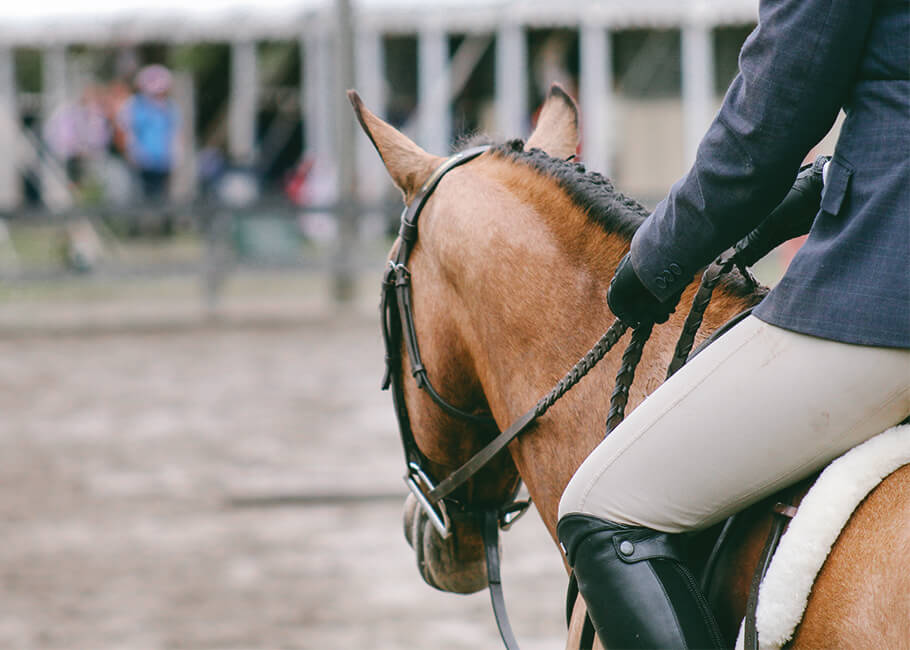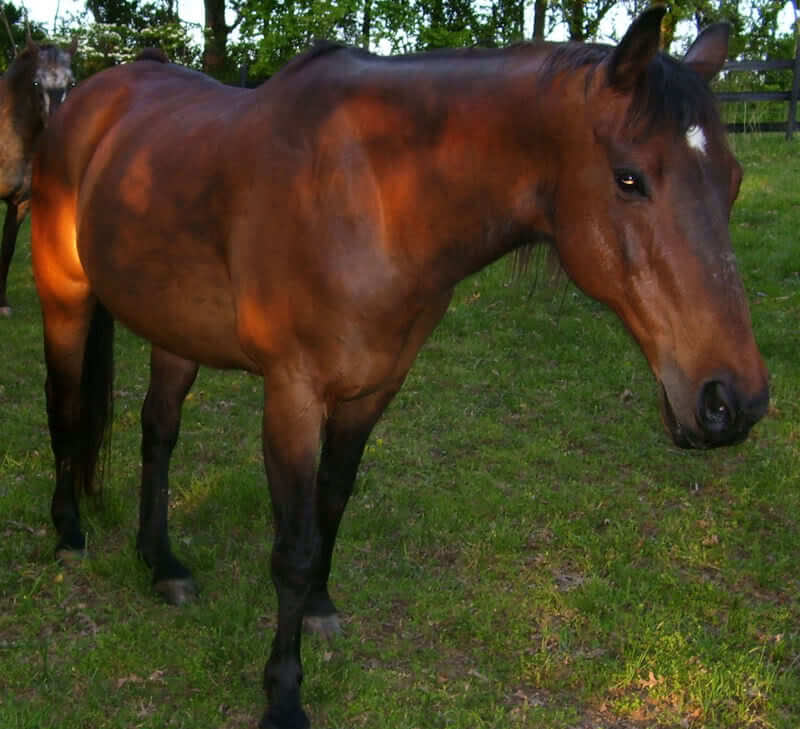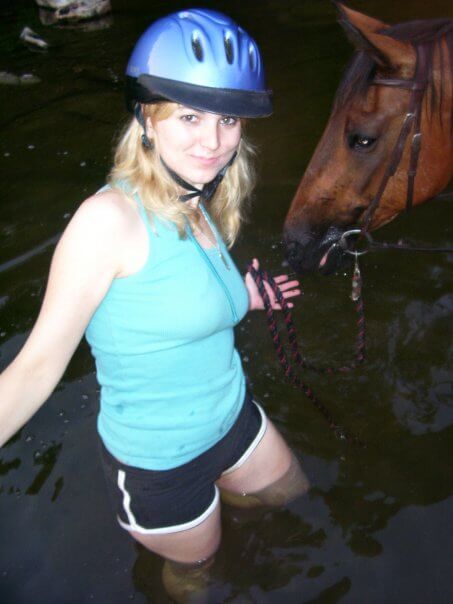
The beginner’s horse is a gem and a treasure among horse owners. They are beloved by their owners, and sometimes hard to find for sale. They are high in demand, and can command a high price tag.
Why is a beginner’s horse so desirable? For the non-equestrian, it might seem a little confusing. The title “beginner’s horse” would suggest that someone has just entered the sport, and therefore wouldn’t want to pay a lot for “entry level” equipment. Surely an expert’s horse, with it’s high level of training and competitive edge would be more desirable? Compare it to other hobbies – an expert level piece of equipment is often vastly more expensive than the beginner’s level of equipment.
A lot of newer level riders make this mistake when they purchase their first horse. It’s extremely common for beginner rides to assume that once they have the very basics of riding down, they are ready for a fancier, younger, or more advanced horse. Unfortunately, that doesn’t always end well for those involved.
If you are thinking about purchasing a horse, and you’re wondering if you should aim for a a beginner’s horse, or something more advanced, read on. I’m going to go over what makes a beginner’s horse, and why you would choose this kind of horse to purchase.
Characteristics of the Beginner’s Horse

The beginner’s horse is often used as a lesson horse. They are tolerant and patient of all the mistakes rider’s make. Is the rider too aggressive with their aids? The beginner’s horse shrugs it off, he doesn’t hold a grudge. Is the rider unbalanced? He just does his best. Is the rider scared? The beginner’s horse has his back, he’ll be brave for both of them.
The beginner’s horse is a caretaker. He knows his job, and he’ll happy pack his fragile humans around with him. He might make a few mistakes, but never anything intentional, he doesn’t have a mean bone in his body.
The most important characteristic of the beginner horse is their temperament. They are calm, patent and forgiving. They give their riders and handlers confidence, and help them learn about horses. They can come in any breed and size, but are mostly likely to be older horses, as they have more experience.
A beginner’s horse will always be well trained. They are not just really calm green horses, who may be nice, but are not at a level where they can be trusted. They may eventually become the beginner’s horse, but it’s risky to consider them a beginner’s horse in their current training level. Beginner’s horses need to know what their job is, and know it better than their rider. They know how to both respond to the correct aids, and mostly ignore the incorrect aids that inexperienced riders may inadvertently make.
Why a Beginner’s Horse?

The most important reason to choose a beginner horse is safety. There’s no way to guarantee that any horse is going to be completely safe, but the beginner’s horse is going to have a higher likelihood of keeping you safe. They don’t usually spook, rear, kick out, bite, or do anything unexpected. They are the solid equine citizen, who will act in very predictable ways, and therefore do nothing to scare their riders.
They aren’t spooky, so riders can feel confident going out on trails, going in a show ring with scary flower boxes, or just cantering quietly through a meadow, just like they show in all the horse movies. They are the quiet, uncomplicated horses that an a rider can just relax on, and enjoy being out with their horse.
You can often advance your riding skills faster with a beginner’s horse. You’re able to concentrate entirely on yourself without worrying about the horse acting up. You could gain a solid seat by riding without stirrups, practice balance exercises on the lunge line or gain strength by holding 2-point for 10 minutes. The beginner’s horse doesn’t mind helping you with these exercises, a more advanced horse might have some quirks about it, including getting bored and acting out.
Potential Downside of the Beginner’s Horse
For as spectacular as the beginner’s horse is, there are some downsides, and these are usually the reasons people pass them by.
They aren’t very flashy. Not the rule of course, but most of the times, they are just your average, generic horse. They could have fancy breeding, sure, but a lot of times they are of unremarkable breeding or appearance. Their beauty often lies on the inside, not the outside.
They aren’t competitive. This can be a legitimate reason to move on from the beginner’s horse. Often times the rider will learn the basics of riding, and will want to advance. The beginner’s horse, especially if it’s ridden by many people, like a lesson horse, will often ignore more advanced cues because it’s essentially been trained to. This can make it difficult to advance past a certain stage in riding. Or, the beginner’s horse isn’t fast enough, either in cue response time, or just for speed events. Their slowness makes them ideal for the beginning rider, but eventually a rider may want to move faster or jump higher.
They may have more maintenance needs. As beginner horses are usually older and been ridden for quite a while, they might be feeling their age. They might need joint injections, special diet requirements or routine care to make them comfortable.
They can be expensive. The beginner’s horse is a desirable animal. Lots of people just want to feel safe when they ride, and not have to worry about what kind of training their horse needs. If you add in an attractive appearance or breeding, their price goes up. If you have a beginner’s horse that is both attractive and competitive, that’s a very expensive horse. They are usually described by the terms “packer,” and add in lots of “auto,” adjectives.
They install a rider with sometimes too much confidence. Confusing, I know. The point of the beginner horse is to install confidence in the rider. But sometimes someone rides the beginner horse, finds it very simple and easy, and thinks they are capable of way more of an advanced horse than they are actually capable of handling.
Sometimes the beginning rider actually avoids a beginner’s horse, and seeks out a cheap, healthy, attractive, and untrained horse. I’ve seen it happen multiple times when someone new to the sport purchases a very young or green horse, thinking they are getting a good deal. Unfortunately this can end in a lot of heartbreak, with possible bone breaking as well.
If you have been finding your beginning horse too easy, you are of course allowed to seek out a more challenging ride. Beginning horses have their place, and they don’t always suit everyone. If you are finding the beginning horse too easy, know there is an intermediate step, don’t go right to the crazy young horse. If the beginner horse is a 1 or 2 on the temperament scale, go to a 4 or 5 before trying an 8 or 9.
The beginner’s horse is a gem, and that’s why people hang on to them. Even if they themselves have moved on to a more experienced horse, they might keep the beginner’s horse around as a boyfriend horse, guest horse, or to give out pony rides. If you want an uncomplicated ride, the beginner’s horse is for you. They might not have fancy legwork, but if a simple ride is all you want, they’ll be perfect.
Other Articles for Your Equestrian Journey
How Long Does it Take to Learn to Ride?
Am I too Old to Learn to Ride?
Want your horse on your own property?

What Progress Should I Expect as a Beginner Rider? - An Equestrian Life
[…] The Perfect First Horse […]
Should You Lease a Horse? A Guide - An Equestrian Life
[…] What kind of horse should a beginner get? […]